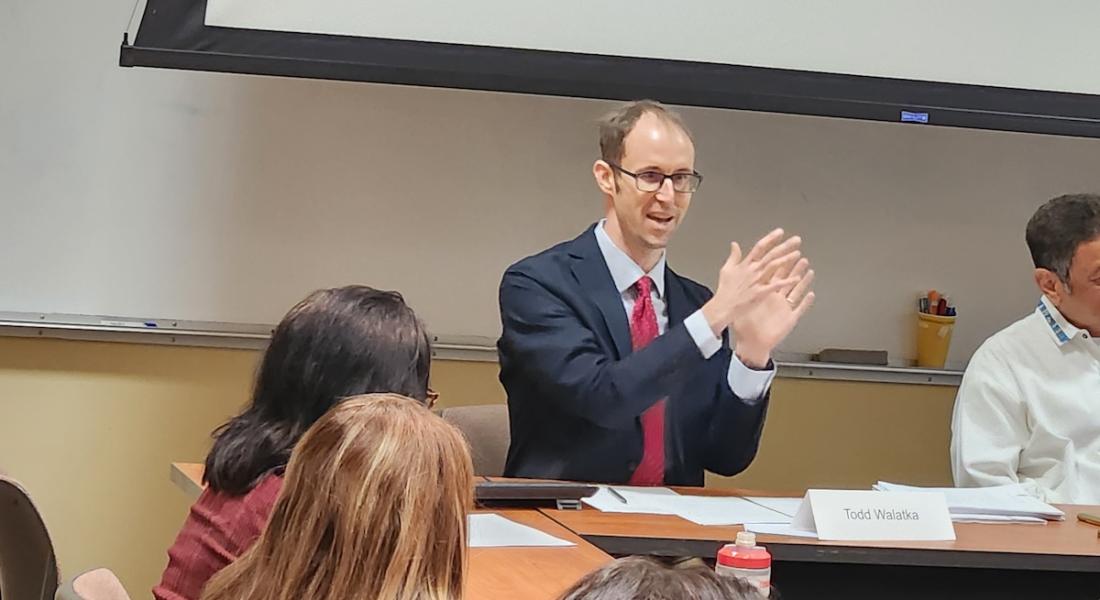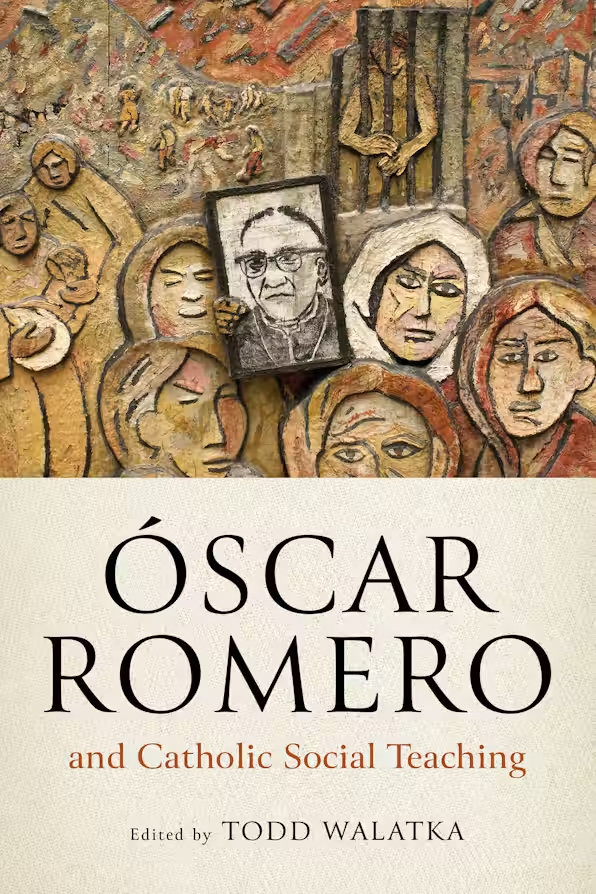
For decades, the Kellogg Institute for International Studies has hosted “Romero Days,” an annual tradition that honors the legacy of St. Óscar Romero. Over the years, this event has taken many forms – from intimate lectures and Masses to full-scale academic conferences.
This spring, Romero Days became the stage for the launch of a new book, Óscar Romero and Catholic Social Teaching, published by the University of Notre Dame Press. Edited by Kellogg faculty fellow Todd Walatka, with a chapter called “Faces of the Salvadoran Christ: Archbishop Romero’s Praxis of Human Dignity in the Flesh” contributed by fellow theology professor David Lantigua, the book marks a significant milestone in Romero scholarship at Notre Dame.
The project began in an unconventional way – unable to meet in person due to the COVID-19 pandemic, the group of 14 contributing scholars convened through Zoom every three weeks for six months. These virtual meetings allowed the chapter authors to collaborate more closely and frequently than would have been possible had they only met in person as originally planned, creating a vibrant intellectual community and fostering in-depth feedback.
Of the book’s structure, Walatka says, “While each chapter is still written by a different author, our goal – and I think we've succeeded in this – was to create something that falls between a random collection of essays and a single-authored work. Because we were able to collaborate throughout the writing process, authors often reference other chapters.”
This book examines the life, mission, and writings of martyred Salvadoran Archbishop St. Óscar Romero, placing them in conversation with contemporary efforts for justice and human development. It brings together diverse perspectives from scholars around the world to contextualize Romero’s legacy and reflect on the challenges facing Christian communities today.
Walatka and Lantigua have both played crucial roles in organizing Romero Days in recent years, helping to sustain a growing network of Romero scholars dedicated to exploring the intersections of faith, social justice, and Catholic Social Teaching. The volume itself draws from this collaborative spirit, offering essays that deepen understanding of Romero’s life and enduring theological influence.
 St. Óscar Romero remains a towering figure in Catholic Social Teaching, renowned for his outspoken defense of human rights and his strong stance against state violence, military repression, and economic injustice in El Salvador. Romero Days serves a dual purpose: to celebrate his legacy and to nurture the academic study that continues to inspire social and theological inquiry. The annual gathering provides a vital forum where scholars and students can come together to reflect on Romero’s teachings and their relevance in today’s world.
St. Óscar Romero remains a towering figure in Catholic Social Teaching, renowned for his outspoken defense of human rights and his strong stance against state violence, military repression, and economic injustice in El Salvador. Romero Days serves a dual purpose: to celebrate his legacy and to nurture the academic study that continues to inspire social and theological inquiry. The annual gathering provides a vital forum where scholars and students can come together to reflect on Romero’s teachings and their relevance in today’s world.
“I can't think of a saint who more powerfully and helpfully speaks into our own time. He's someone who struggled to live out the Gospel in a time of extreme polarization, extreme violence and inequality,” Walatka says.
The 2025 Romero Days conference, which included the book launch, also offered a forward-looking vision for the field of Romero Studies. The growing community of scholars discussed how they hope to chart new directions for research and teaching, building on the foundations laid by the book and the decades-long event. One initiative beginning this summer will explore the remembrance and interpretation of Romero through art, music and poetry – an effort they ultimately aim to publish as a second, interdisciplinary volume.
“Someone who has such a depth to their thought, like Romero, is worth engaging again and again. Romero's one of those figures, but he has not been given that kind of treatment. My hope is that Óscar Romero and Catholic Social Teaching will start this kind of engagement,” Walatka says.
In celebrating this legacy and looking to the future, Romero Days and the new volume ensure that the witness of St. Óscar Romero remains a powerful force for justice, dialogue and hope in the years ahead.
“One of my main goals over the last 10 years was simply to help as many people as possible encounter Romero,” Walatka says. With Óscar Romero and Catholic Social Teaching setting a new precedent for collaboration and scholarly dialogue, that goal is more attainable than ever. As Romero Days continues to evolve, this new volume ensures that Romero’s witness will not only endure, but continue to shape conversations on faith and human dignity for generations to come.





